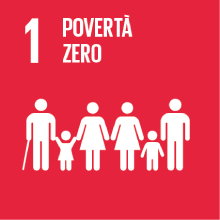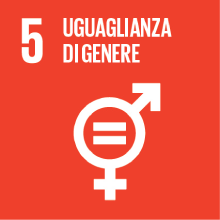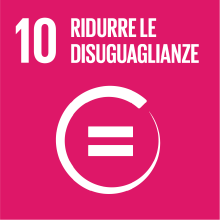MIGRATION AND GLOBAL TRANSFORMATIONS
- Anno accademico
- 2022/2023 Programmi anni precedenti
- Titolo corso in inglese
- MIGRATION AND GLOBAL TRANSFORMATIONS
- Codice insegnamento
- LMH410 (AF:398239 AR:214312)
- Lingua di insegnamento
- Inglese
- Modalità
- In presenza
- Crediti formativi universitari
- 6
- Livello laurea
- Laurea magistrale (DM270)
- Settore scientifico disciplinare
- SPS/08
- Periodo
- I Semestre
- Anno corso
- 1
- Sede
- VENEZIA
- Spazio Moodle
- Link allo spazio del corso
Inquadramento dell'insegnamento nel percorso del corso di studio
On the one side, international migrations are the effect of wider processes in political, economic, social and -indeed- environmental fields. On the other side, migrants' trajectories have an impact on their surrounding social and natural environments, in countries of origin as well of arrival, at multiple levels. It is in this perspective, that this course tackles the issue of human mobility and the transformations associated with it.
The course is also offered to students from the LM programs “Studi transmediterranei: migrazione, cooperazione e sviluppo” and “Relazioni internazionali comparate” (Global studies e EU Studies curriculums).
Risultati di apprendimento attesi
1) illustrate the main theoretical approaches to human mobilities in relation to global transformations, including climate change
2) identify the fundamental terminology and concepts used in migration studies and use the terms correctly in context
3) describe main issues from the history of international migrations, and their economic, social and political implications, in key geographical areas
4) critically analyse current academic and policy debates on migrations, and their relationship with the external social and natural environments in which they take place.
5) capacity to select and elaborate on relevant sources (secondary literature and empirical data) in order to provide a sounded and clear discussion of the course topics
6) effectively analyse and present in English (in writing and speaking) original research results, expanding on the core issues addressed by the course
Prerequisiti
Contenuti
Testi di riferimento
The full selection of readings will be provided before the start the course and made available on the moodle page in PDF format.
Modalità di verifica dell'apprendimento
1) A PAPER to be submitted (via moodle) one week before the day scheduled for the oral exam.
The paper has to be prepared individually, whilst presentations made in class can be done in group (see below). The paper has to follow the compulsory Template (see moodle).
Deadlines: students who want to prepare a paper have to submit a ABSTRACT (max half-page) before the deadlines published by the teacher in due time (see below for the updated calendar). Later abstracts will not be accepted. The abstract has to describe the chosen case-study, the way it will be approached in relation to the topics of the course, and some first bibliographical references.
Concerning the topic of your paper: you have to chose a case-study which relates to one of the 6 topics we discussed in class (see list on the moodle) and expand it through the analysis of a specific case study, with the support of the proper literature. You need to adequately quote and integrate in your analysis at least 2 of the Compulsory readings.
Focus: please remember that you are writing a research essay and not a policy brief or a report. This means that the selected case-study needs to be interpreted as embedded in one of the general theories and phenomena we discussed in class, showing that you master the state of the art literature on these topics and you can relate to the main research questions in this field. For this reason, the main tool to analyze your case-study will be the (Compulsory and Extra) readings available on the Moodle. You need to show how you used them in your analysis, by quoting them in the appropriate ways.
2) The ORAL EXAM will consist of a discussion starting from the written paper, and later expanding to cover other aspects of the course program, with particular with reference to the Compulsory readings, in order to have a full assessment of the knowledge and abilities they have learned through the course.
For attending students: attending students will have the opportunity to give a PRESENTATION of the draft version of their paper to the class. A calendar of these presentation will be agreed with the teacher in due time. The presentation can be prepared by a group of max 3 students (but papers still need to be individual papers)
Presentations in class can be awarded a bonus of 1 o 2 extra point for the oral exam, depending on their level.
Modalità di esame
Metodi didattici
The course will also host some guest teachers from this specific field of study.
Students are invited to contribute with critical questions and comments to the classroom discussion. A selected group of students will have the opportunity to present their personal research in class.
Altre informazioni
***This section will be completed by the teacher as soon as the academic calendar 2022/23 is available***
Here all deadlines you should keep in mind when preparing for the examination for this course, depending on the exam session (appello) you want to join.
Please remember that the oral examinations can last more than one day, depending on the number of students attending.
A calendar of the exams will be published after registrations are closed.
Exam sessions Winter 2022/23:
Deadline abstracts: 18 December 2022
1st Deadline paper: 9 January 2023
1st oral examination: 16 January
2nd deadline paper: 23 January
2nd oral examination: 30 January
Exam session Summer 2022/23:
Deadline abstracts: 20 April 2023
Deadline paper: …..
Oral examination: …..
Exam session Fall 2022/23:
Deadline abstracts: 15 July 2023
Deadline paper: ….
Oral examination: …..
Obiettivi Agenda 2030 per lo sviluppo sostenibile
Questo insegnamento tratta argomenti connessi alla macroarea "Povertà e disuguaglianze" e concorre alla realizzazione dei relativi obiettivi ONU dell'Agenda 2030 per lo Sviluppo Sostenibile





